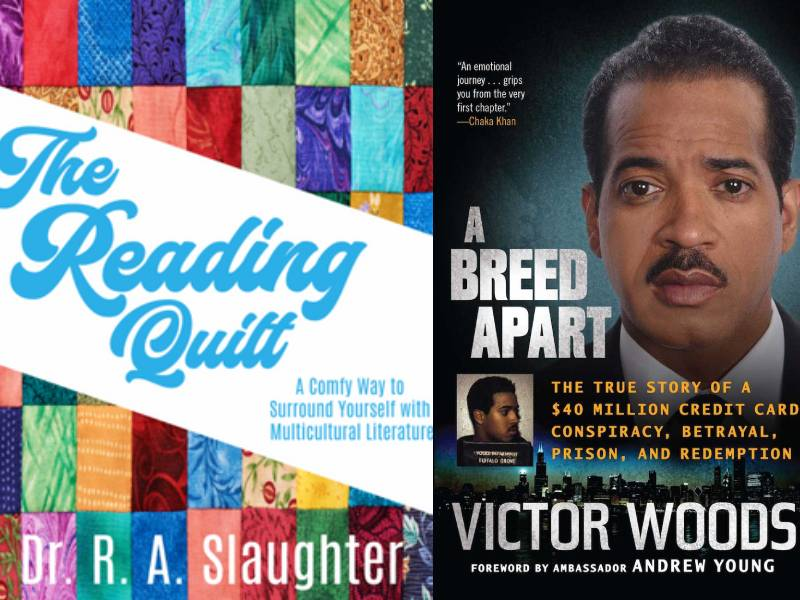Now that Black History Month (BHM) has passed let’s reflect: In February, we take the time to honor the lives of extraordinary Black Americans, their culture, and their turbulent history. Often in February, especially in schools, people are laser-focused on a handful of late Black Americans: Martin Luther King, Rosa Parks, Frederick Douglass, and Harriet Tubman.
The BHM celebrations and recognitions are well regarded and necessary, but they must be improved? Does BHM month miss the daily and extraordinary accomplishments of Black Americans who can serve as living and emotional testimonies of everyday American life?
Perhaps we can take just one moment in Women’s History Month to give the nod to a man whose childhood started in a privileged family in the suburbs of Chicago but continued in a life of crime which landed him in jail. After his release, he vowed to travel to the United States to help young impressionable minds avoid the pitfalls of crime.
Victor Woods, motivational speaker and author of A Breed Apart (Atria, 2015), is a model of redemption from crime and victory in rebuilding a better life. In an effort to help other young people avoid lives of crime, Woods has taken the message of his memoir to the streets.
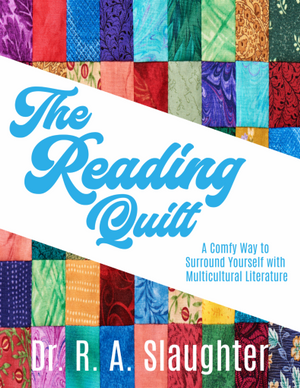
Each month “The Reading Quilt” provides a short review of a book that a teacher may use to spark conversations about culture and race. This month features an interview with Victor Woods, author of a memoir that encourages young people to resist criminal behavior, embrace their inner greatness, and give back to others.
In the following Q/A, Woods details his poignant experiences that are captured in his book “A Breed Apart” published by Simon and Schuster in 2015. The book has since caught the eyes of the executives at Hartbeat, Kevin Hart’s entertainment production company.
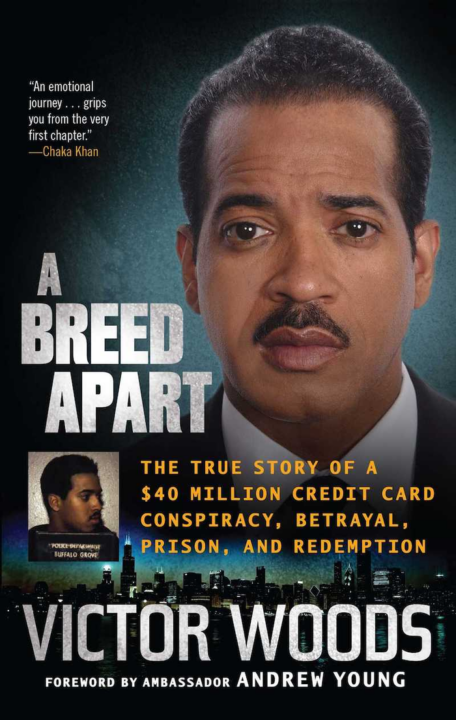
Cover of A Breed Apart, Victor Woods
Q – Your autobiography is well constructed. Was it difficult for you to compose this book as a new writer?
A- When I first completed the manuscript, it was 900 pages that I scaled down to 578 pages and self-published it.
Q- What happened when you caught the eyes of Simon and Schuster Publishers?
A- Simon and Schuster came in (after I received a ton of rejection letters from other publishing companies) and scaled my manuscript down by half. There is so much more to my story than what is included in the book.
Q- The book is so well written that it seems like you took writing courses. Is that the case?
A- I wrote the book by hand and saved all of my handwritten pages in case someone suggests that I had a ghostwriter or a helper, I could show my handwritten stack of papers to show that I did everything myself. I wrote every word. I got no help.
Q- You are a knowledgeable man who grew up in the suburbs with great parents as role models. I Googled you and found this short description: “Born to an affluent Chicago family — the son of a Fortune 500 executive and a dedicated schoolteacher — Woods attended all the best schools and was never in want of anything. He lived safely in the bosom of a loving home. But like so many African Americans who came of age in post-segregation America, newly entitled to the benefits of racial integration, Woods felt alienated and enraged.” So, how did you get mixed up in crime?
A- When you consider my background, it is unusual that I would choose a life of crime. It was this idea that riveted Bryan Smiley, President & Chief Content Officer of “Hartbeat Productions,” to my story. Bryan said to me, “Most of the time when people get involved in crime, they were born into it. Or the story is that they are a product of the inner city and this or that happened to them. That is the typical story.”
Q- So you are atypical.
A- Yes, I had a mother who went to Spelman, a father who went to Morehouse. My mother has her master’s degree. My grandfather went to Moody Bible Institute and earned his Ph.D. My aunt was a sitting judge, and her husband is a doctor.
Q- Yes, the pedigree is evident. Your background is solid. So why crime?
A- The short answer is that I was a kid, and I ran away from home because I didn’t want to listen and I didn’t want to be out in the suburbs as the only Black kid.
Q- Safe home in the burbs, loving parents, money. Victor, you have described the American dream. Why would you snub your nose at it?
A- You have to remember, I grew up in the ’70s. When you are a kid, and you walk into a school and have a thousand kids calling you the N word, you might not want to be there. Basically, I wanted to relocate and do something different.
Q- Where did you want to go? What were your plans?
A- I wanted to go to Detroit, where my grandmother lived, but my parents were against it. They said, ‘You’re not going there with your mess and cause her a mental breakdown.’
Q- Were your parents right?
A- No, because me and my grandmother never had a problem. She was my heart. Nonetheless, I ran away from home. I didn’t listen when my parents told me to get my butt back in the house. I just kept walking off into the darkness.
Q- Wow, you were brave and quite stubborn. What happened when you left?
A- Once I was away from the confines of my home, I got hungry. Honestly, sometimes you take for granted that there will be food and juice in the refrigerator, toilet paper, a roof over your head, and a bed. But when you walk out of your house and you do not have anywhere to go, stealing starts as a necessity. I was shoplifting for food and sleeping in various friends’ closets. After their parents went to sleep, they would sneak me into the house.
Q- That is a tough existence. How long did you live that way?
A- Eventually, I got my own apartment with a guy who played junior college football, and he had extra room.
Q- How old were you when hanging out with the college student?
A- I was fifteen years old, in the apartment, and I am stealing bicycles cause I don’t have a job and I am trying desperately to make extra money. But, I had a creative mind to begin with, so they say the idle mind is the devil’s workshop. So, like a lot of kids who you see in inner city schools, if you don’t find that niche for their creativity…painting, drawing, building something, or chess, you will lose them.
Q- So your creative mind was idle, and what happened?
A- When you are like me, creative and intelligent, and not knowing where to use that creativity, I just expanded whatever I could…and that was crime. For example, when I did my first armed robbery, I got something like $5,000. In 1980’s, $5,000 was like $20,000 in today’s money. That is a lot of money for a 15 year old black kid in the suburbs.
Q- In some ways, you needed the money because you ditched your comfortable home to live on the streets. However, essentially, crime excited your creativity back then.
A- Yes, and after that, I wanted to continue to get that easy money. I shouldn’t say, ‘easy money’ because it wasn’t easy, but it was the life I chose.
Q- Do you now realize that the effort you put into crime and the mental fatigue that came with it is the same mental effort you could have used for a positive and fruitful life, or a life on the straight and narrow?
A- Yes, no question about it. You are right to say that if we catch young people early, we can show them how to use their creativity for positivity. For example, if you are selling drugs, you have to market and distribute the drugs. Listen, Jay-Z got this right. He put out what he called “The Blueprint.” The album detailed how he once sold drugs, transformed it, and moved it into a different direction. Fifty Cent did it. He was a drug dealer admittedly and took that same entrepreneurship, hustle, and fortitude and placed it in another direction. I am definitely not the only one who has done this.
Q- The difference between you and the rappers you mention is that not one that you mentioned came from a solid upbringing. Those guys came from poverty and single-parent homes. You grew up in a two-parent, economically safe suburban home. Did any part of you recognise that your life choices were embarrassing to your family’s reputation? In other words, did you choose the life of crime to snub your nose at your family’s legacy and get a rise out of your parents?
A- To be honest, mine is an unusual story because, actually, I am a retired gangster. My crimes were big and on the front pages of newspapers. I was on American Gangster with Larry Hoover. I was locked up with mafia hitmen. I moved up to do big things (in crime) and I was good at crime. Actually, I never thought about the consequences of my actions. But it was never about embarrassing my parents. This was never about embarrassing my parents. I enjoyed what I was doing. I would case a place for months before I robbed the place. This was about getting away with something and using my brain (to get money). I was a leader. I was never a follower. When you look at the crimes that I committed, you can see that all of my abilities meant that I was bent on showing people that not only am I smart, I am smarter than them. One thing that is important to note is that I was attending Northwestern, in my twenties, while selling drugs and I never got caught. Someone who I knew (who was associated with Northwestern) suggested I go to Northwestern even though school didn’t mean anything to me. But, my friend told me that if I pass the entrance exam, Northwestern will let me in. I passed and I got in.
Q- So, at one point, you were a college kid living a life of crime.
A- Yes, I enjoyed the life of crime. I wasn’t killing anybody. Crime was interesting to me: To do an armed robbery, come back to a hotel room and the police are arriving at the scene, and I am sitting in a hotel room with a bag full of money. Yes, that life was interesting to me: to spend $100,000 a day with those stolen credit cards, and have the secret service chasing me.
Q- Wow! You spent $100,000 a day!
A- Yes, I was a big time criminal and (when I was investigated by the Federal Government) I refused to cooperate with the Feds. I was offered five years probation and I told (the Feds) that I would rather die in prison than to tell on my family and friends. I knew that I had committed the crimes. I knew that I needed to take responsibility for the crimes. And I did. I saved fourteen people’s lives from going to prison.
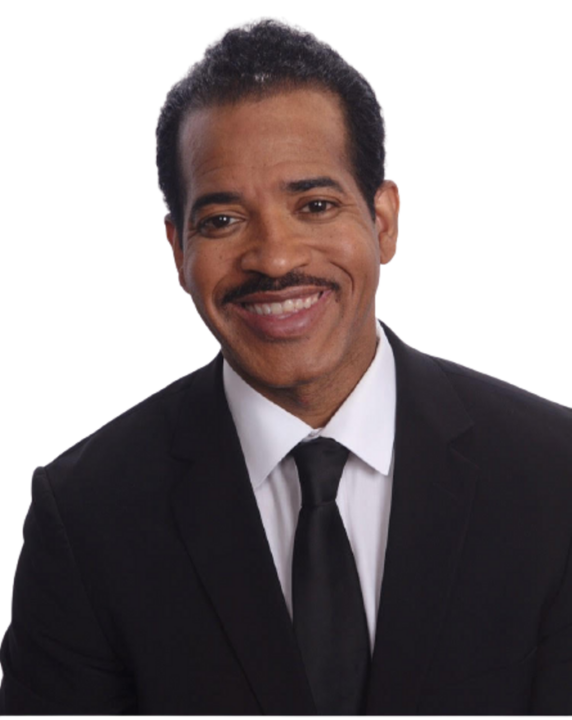
Victor Woods, Source: Official Website
Q- So you went above and beyond a life of petty crime. Your life was centered upon a credit card scam worth more than forty million dollars.
A- I was trying to show my parents “I don’t need you.” My parents were hell-bent on doing my life their way or I needed to hit the highway. In choosing a life of crime, I was saying “I am going to live my life my way, like Frank Sinatra says in the song. I am not going to listen to you. I am going to show you that I can make it without you, and I don’t care if I have to rob, steal, or put a gun to someone’s head to do it.” I began to love a life of crime.
Q- How did you even know how to break into a life of crime? Who were your role models?
A- My heroes were Lucky Luciano and Bugsy Siegel. So when the other kids were reading about Abe Lincoln and George Washington, I was reading about Lucky Luciano, a man in the mafia. And, if you look at my crimes, they were connected and formulated that way (mafia mentality).
So, I knew what I was doing. My motivation was buying nice clothes and living a luxurious lifestyle. You have to remember, I was 16 years old wearing a tie, slacks, driving an expensive sports car to school and spending thousands of dollars at the mall on clothes. I was a lot more sophisticated than most young people. But, embarrassing my parents was never on my mind.
Q- Do you think you were a genius who happened to choose a life of crime?
A- I don’t want to come off as self-glorifying but there is no question (that I was a genius). There are geniuses who do some things well, and geniuses who do everything well. A judge once told me that my ability to lead people is amazing. Judge James F. Holderman (Ret) said, “Victor, your ability to be persuasive and influence people is frightening when it is turned toward criminal ends.” I am a genius at getting people to do things that I want them to do.
Q- Yes, there is a magnetism about you.
A- Zig Ziglar, author and public speaker, once said “A good speaker can get 75-85% of his audience locked in. If you look at my audience, whether I am talking to White or Black people at schools, churches, or businesses, 99% of the people are riveted to me. A prisoner once heard me give a speech in prison and said “Victor was spellbinding when he spoke.” I took a communication class at Northwestern, but I have the natural ability to speak and influence people.
Q- What point are you making with your book?
A- What I want people to understand isn’t that I did crime and went to prison, was released, and now I am telling my story. No, I want people to understand that they can LEARN from my story.
I am published by Simon and Schuster, a major publishing company. I am published by the same company as John F. Kennedy, Steve Jobs, Barack Obama, and Bill Clinton, and the list goes on and on. Now you can add Victor Woods to the list. I am a part of a major publishing company and conquering Hollywood. I am in a class by myself.
Q- Your accomplishments attest to your high intelligence.
A- Yes, you would have to possess a high level of intelligence to have done the crimes that I committed. You have people coming out of Yale and Berkeley who are never going to get published and receive an offer for a movie deal like I did. Most people do not have the God-given ability that I have. And I say that with sincere humility because without God, none of this would be possible.
Q- In some ways, you are saying you are a success in your own right. You didn’t follow the traditional path your parents had in mind, instead, you forged your own road.
A- If I had traveled the pathway that my parents had laid out for me, there would have been nothing wrong with that. I would have graduated from Morehouse College like my father and worked for General Mills, a corporate job, like him. I would have engaged in Jack and Jill of America and come together with the Black elite. But, that is not what God had in store for me. My grandmother always said, “Victor, you are destined to minister to the people.” So God gave me a very strong story to tell to all races and cultures to help change people’s lives. I want people to think if God can change someone like Victor Woods and mold him into a person who can help do God’s work, God is good. I am doing God’s work, and doors are flying open for me. That is why Andrew Young did the foreword for my book.
Q- A foreword from Andrew Young is a huge accomplishment.
A- But, there are young people who do not even know who Mr. Young is. Yet they are inspired by Larry Hoover because they are trying to model the criminal behavior they hear in rap songs. But these young people don’t even know Larry Hoover’s legacy because he has been locked up for over 50 years.
Q- Victor, tell me about your redemption. How did you turn your life around?
A- I am grateful that God allowed me to get out of prison. Had I gone to Morehouse, and done what my parents wanted, would I have gone to all the prisons or detention centers I went to and influenced people? Would I have gone to all the churches and done the kind of work that I do all over the United States. No, I would not. Yes, I started at the top (when you consider the money I made via crime). But God brought me all the way down to cleaning toilets and took all the glitz and extravagance away from me so I may know how other people feel. I recognized that, because of my privilege and upbringing, that it was incumbent upon me to give back.
Q- So you know that your privilege has purpose.
A- You can look at my life now and see that God protected and moved me through a life of crime. He spoke to me and when He wasn’t speaking, He put other people in my life to speak to me and lead me to where I am. I have been out of prison for twenty five years and look at what I am doing. Praise God!
Q- When you think back on your experiences in jail and the poor treatment you received, how did you maintain humility, faith in God, and a sense of purpose?
A- My grandmother instilled that sense of purpose in me. I pray on my knees. I prayed throughout prison. My grandmother always told me, “Victor, you can make it.” My humility comes from the fact I know there is a God who sits up high and looks down low.
Q- Despite the despair you faced, you seem to be upbeat with a light inside of you. You have proven that you never give up. Your book illustrates that you persevered even behind bars. Why is that?
A- I made sure to take care of myself in prison. I said to myself “Victor, you should work out two times a day. Eat the right foods and not take any prison alcohol. Do not engage in any conduct that would cause me to not be the best version of myself when I leave prison.”
Q- How did you eliminate the anger you talk about in your book?
A- Honestly, I had a chip on my shoulder because I was mad at people who had done me wrong. I wanted to show people up. My grandmother used to say, “the proof is in the pudding. Don’t talk about it, do it.” That was arduous advice to follow. For example, it took me five years to get a paid speaking engagement. I have been homeless as a speaker. But I refused to give up. I kept going and going and going. I had the belief of things unseen. There is a higher power, and it is in me. Every day I find a reason to thank God for my existence.
Q- Do you also thank your parents?
A- Yes, I love my parents. My father and mother taught me a lot. I would be remiss to sit here and act like their kindness didn’t rub off on me. It definitely did. But I put my experiences up against anybody. On the other hand, I am old enough to understand the tremendous embarrassment that I caused my parents, who lived in an all-white neighborhood and have a son who went, with a replica machine gun, and robbed the grocery store. My parents have still not come to grips with my past. They are angry. They prefer that I had not written a book about my past or been on television. But I have to do what I am doing because it is what God wants. But my parents were good people. Very nice. I have apologized to them, and they know that I love them, although we do not agree. I say to myself, “Look at the Black boy who didn’t graduate from high school or college, ran away from home, went to prison twice, and been in a gang, but look at me now!”
Q- You have been out of prison for many years. What are your days like now?
A- Listen, I go back into prisons to speak to the prisoners and ask them to better themselves. Also, I want them to sign a petition asking them not to shoot up places randomly, killing innocent bystanders. (I do this work with my production crew.) We got nominated for an enemy for this story.
Q- Do your presentations make a difference?
A- I like to say that I have dropped seeds in people’s brains. In other words, I start the conversation. I have received thousands of letters from people whose lives I have touched. My agent says, “Victor, people either love you or they hate you.” That is the kind of personality that I have. I have the ability to be a magnet and I can use it for bad or good. I choose to use it for good.
To reach Victor Woods, visit https://victorwoods.com
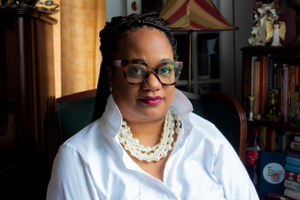
Dr. R. A. Slaughter’s (Doc) textbooks Turning the Page: The Ultimate Guide for Teachers to Multicultural Literature, and Turning the Page: A Guide to Securing Multicultural Literature for Schools, both published by Rowman & Littlefield and available in all bookstores, have brought Doc global recognition. For more information, log onto DrRachelSlaughter.info or check out “The Reading Quilt” talk show on Mondays at 3:30pm on PhillyCam beginning in April.

